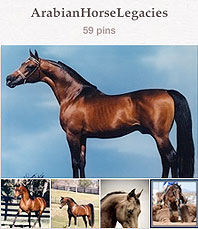
you haven’t heard all about Pinterest, it’s time to plan a long lunch with a tech-savvy girlfriend. If she’s already a member, she may be serving Nutella cupcakes from a DIY-decoupage tray—two projects inspired by her virtual pinboards.
As an active scrapbooker, creative hobbist, and social media professional, Nicole M. Miller got the Pinterest pitch from artsy-craftsy friends shortly after the site launched in 2009, but didn’t see how it could help her as an author until it emerged as one of the fastest-growing social media sites in history.
“In 2011, when it started to really explode, a writer/blogger friend of mine, Caitlin Muir, made a comment, ‘What if you created pinboards to create your characters and story worlds?’ and I took off with the idea,” she says. “Then, I couldn’t get enough Pinterest, and it has become a great organizational tool.”
And she’s far from the only addict. Pinterest hit 11.7 million unique monthly U.S. visitors in January 2012, according to ComScore, and attracts more than 1.36 million visitors each day. Pinterest also reached the 10 million monthly visitor mark faster than any other independent American site and boasts more than 23 million members as of July, also according to ComScore, the digital business analytics clearinghouse.
That number is likely to rise since the site dropped its invite-only requirement for members and rolled out new mobile applications in August. The rapid growth has made Pinterest an obvious outlet for authors looking to promote blog posts, collect inspirational ideas and images, and build a community of readers and other industry professionals interested in their writing world.

“For me, it’s drastically increased my blog traffic . . . by almost 200 percent.”
(Photo: Nicole M. Miller)
One More Social Media Time Suck?
For writers promoting themselves and their work, it’s become impossible to ignore the marketing benefits of social media sites. You may already be blogging to build your author platform, making contacts via LinkedIn, using Twitter to share pithy prose 140 characters at a time, or expanding your Facebook fan base through compelling content and reader contests. And if you’re like most authors who aren’t lucky enough to have help from a publicist, you’re doing it on your own.
But Pinterest doesn’t have to be yet another social network that demands attention at the expense of precious writing time. Instead, it can serve as a source of inspiration, another way for fans to connect, and a powerful referral engine that drives people who have never read your work to your other online offerings.
Indeed, Pinterest’s greatest potential might be as a source of referral traffic. Each time you add a “pin,” or image, to Pinterest from another website, the pin links back to the original website, and research shows people are following those links. In September, Shareaholic reported that Pinterest is now the fourth largest traffic source in the world. This means that it drives more traffic to websites and blogs than sites like Google Plus, LinkedIn, YouTube, and Twitter!
So how can you harness the power of Pinterest to direct traffic to sites that market your books, products, and services without alienating friends and potential customers with obvious sales pitches? What’s more, could Pinterest be an effective way to inspire both you and your fans to build a robust creative community that shares much more than cupcake recipes and cute cat pictures?

“You want to establish a reputation as someone who is interesting to follow.”
(Photo: Morgan Siem)
A Natural Fit
That doesn’t mean there’s no room for cupcakes and cats on a pinboard particularly for authors who specialize in those topics or others that lend themselves to beautiful visuals. Although Lulu.com has found ways to market a wide variety of its titles on Pinterest, some eye candy-heavy books are a natural fit for the site.
“Photo books are an obvious connection, followed by cookbooks,” says Morgan Siem, social media manager for Lulu.com.
Wedding and inspirational books with poignant quotes are also popular. And authors who write for a female audience are finding a following by highlighting the most quotable girl power lines from their books. Although Pinterest’s demographic profile is expanding, more than 68 percent of members are women.
“So if you can create some little image and link it to a quote, that works really well,” Morgan says.

Pinterest has worked well for Nicole, who writes about history and horses. She uses her Pinterest account to collect ideas, inspiration, and links to books she has read or wants to read. Most of all, the former rodeo queen uses it to showcase stunning images of horses.
“It is a good tool in niche markets,” she says. “My sorts of topics lend themselves very well to an image-heavy outlet like Pinterest.”
Nicole, who works as the social media coordinator for a university when she’s not writing, says choosing powerful pictures is critical when building pinboards to attract new followers. She selects the most dynamic, vivid, and clean photos to add to her boards, often using her own pictures to create original pins. “The really visually stunning ones have been getting the most repins,” she says. “With Pinterest, you end up seeing repinned items by people who may have never heard of you otherwise.””CLICK HERE
